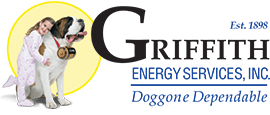 Winter or summer, effective home energy efficiency will pay off with reduced consumption and dramatically slashed monthly energy costs. Here are 12 home efficiency tips that you can use to evaluate your energy usage and implement effective techniques for reducing it. You’ll be able to cut both the amount of energy you use and the amount of money you pay to keep your home comfortable and up to modern standards during all seasons.
Winter or summer, effective home energy efficiency will pay off with reduced consumption and dramatically slashed monthly energy costs. Here are 12 home efficiency tips that you can use to evaluate your energy usage and implement effective techniques for reducing it. You’ll be able to cut both the amount of energy you use and the amount of money you pay to keep your home comfortable and up to modern standards during all seasons.
- Shut off and unplug what you’re not using: Among the easiest home efficiency tips is to shut off and unplug electronics, appliances, lights and other power-consuming devices when you’re not using them. Some devices, especially those with internal clocks or timers, use a small amount of energy even when they’re turned off, so unplug them if possible. Plug several electronic devices into a power strip, which makes it easy to turn them all off at the same time.
- Tend to the windows: Apply weatherstripping around windows to block drafts. Caulk and seal around window casings and around window panes. Open curtains and drapes in the winter to allow warming sunshine inside; close curtains in the summer to stop this source of heat gain. Apply insulating window treatments to block incoming heat in the summer and prevent heat loss in the winter.
- Seal HVAC system ductwork: Substantial amounts of heating and cooling energy can be lost through leaks in the ductwork of your HVAC system. Make sure all ductwork sections fit tightly together, especially at elbows and branches. All connections should be sealed with metal tape or mastic sealant, a specialized rubbery sealant used on ducts.
- Increase insulation: Insulation stops the flow of heat, keeping it inside your home in the winter and outside in the summer. Add more insulation to areas with limited amounts, such as walls, ceilings or floors. Make sure attics and basements are insulated. Consult with your HVAC expert to find insulation with a thermal resistance level (R-value) appropriate for use in our Mid-Atlantic area.
- Boost overall seal and airtightness: The seal of your home indicates how airtight it is, and a better-sealed structure is more energy efficient. Add weatherstripping at doors to stop drafts. Find any areas in the building’s walls, foundation, or roof where air leaks can occur, and then seal them.
- Install and use ceiling fans: Ceiling fans can improve home energy efficiency in both winter and summer. In winter, direct the airflow upward (clockwise) to help disperse heat that has risen toward the ceiling. In summer, direct airflow downward to provide drafts that will cool you directly. Downward flow also helps circulate cool air that accumulates toward the lower part of the room.
- Use programmable thermostats: Programmable thermostats allow you to control very precisely when your heating and cooling system runs. They offer set points that let you reduce system operation when it’s not needed, such as during the day when the house is empty. Then they can turn on the HVAC equipment before everyone comes home from work or school.
- Change HVAC air filters regularly: The filters in your furnace or air conditioner are intended to pull particulates out of your indoor air. When filters get dirty, they can impede system airflow, wasting energy and potentially damaging your HVAC equipment. Check air filters at least monthly and change them when they’re dirty.
- Have preventive maintenance performed: Home efficiency tips must include annual preventive maintenance. It’s the best way to keep your furnace, air conditioner or heat pump running at its best level of efficiency. Seasonal maintenance ensures system components are working properly and that the equipment is producing heating or cooling efficiently and effectively.
- Install low-flow plumbing fixtures: Water heating is a major source of household energy expense. Low-flow shower heads and faucets can help reduce the amount of hot water used while still providing plenty of water for the task at hand.
- Convert to high-efficiency equipment and appliances: Whenever possible, replace existing HVAC equipment and appliances with high-efficiency models. Look for indicators such as the Energy Star label to indicate which units are considered high efficiency.
- Insulate the water heater: Install an insulating sheath or other form of insulation on your older water heater to slow heat loss. Newer water heaters usually come pre-insulated. Turn water temperature down to 120 degrees to further save energy.
Griffith Energy Services, Inc. has been serving heating and cooling customers in the Baltimore area for more than 100 years. Contact us today for more information on home energy efficiency and for more home efficiency tips to cut your monthly HVAC bills while still keeping your residential spaces comfortable.
Written by Kevin Spain
Image Provided by Shutterstock.com



